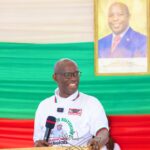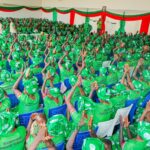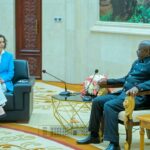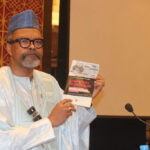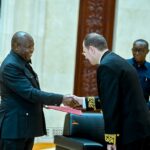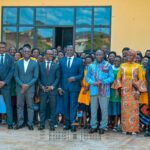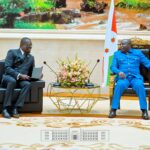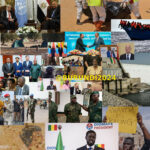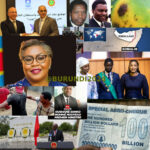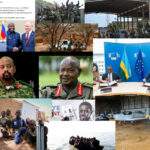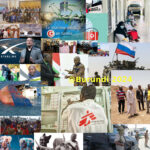Rwandan journalist Didas Gasana told KPFA that Burundi is Africa’s Syria, a site of struggle between Russia and the US, the two poles of the new bi-polar world. Transcript:
KPFA Weekend News Anchor Sharon Sobotta: The unipolar, US-led global order is facing its most difficult challenge since the US rise to global supremacy, most notably from economic, military and nuclear powers Russia and China. This competition is currently most obvious in Syria, but Rwandan journalist Didas Gasana writes that it is also playing out in Burundi, the tiny but geostrategic East African nation which borders Rwanda to the north, Tanzania to the east, and the resource rich Democratic Republic of Congo to the west. Gasana writes that Burundi is Africa’s Syria, deep down in the center of sub-Saharan Africa. He spoke to KPFA’s Ann Garrison.
KPFA/Ann Garrison: Didas, you wrote an essay in The Rwandan and the San Francisco Bay View comparing Syria and Burundi. Could you explain your main points?
Didas Gasana: Both Syria and Burundi are international hot spots, where the global centers of power – that is the US and Russia – are tussling it out. So, basically I was trying to show that what we see in Burundi is not an internal problem. It’s actually between the Kremlin and Washington D.C., which is the same case in Syria.
KPFA: You described Burundi as a proxy war. Could you explain Burundi as a proxy war?
DG: What distinguishes Burundi from Syria is that in Syria, we have the Russian and the US forces sharing the same air space. The US, the UK, Israel and Belgium and Israel are using Rwanda – are using Paul Kagame’s Rwanda – while the Russians and Chinese are using Tanzania and South Africa.
KPFA: We’re being encouraged to think of the Burundian conflict in terms of Hutu and Tutsi. Is there anything you’d like to say about that?
DG: I am a close cousin of the Burundians. Rwanda and Burundi are close cousins, so I don’t buy that story. I don’t believe in that, because when you look at the opposition in Burundi, the people who are opposed to President Pierre Nkurunziza are both Tutsis and Hutus. And in his cabinet, we have got both the Hutus and the Tutsis. So it is not an inter-ethnic divide, but in the end, it all boils down to who is using the opposition against a legitimate government.
KPFA: With Pierre Nkurunziza’s government being the legitimate government, right?
DG: Absolutely.
KPFA: Today, Reuters reported that the African Union Peace and Security Council had urged the AU to send troops to Burundi, so as to intervene in the event of mass violence. What do you think of this?
DG: Well, personally, I think the African Union should be sending peacekeepers to Rwanda, most especially on the Rwanda/Burundi common border, because we know where the trouble is coming from. Burundi, internally, would be safe had it not been for the intrusion of Rwanda and the power that Rwanda is working for, meaning the US, the UK, Tel Aviv and Belgium. So, even if we have these troops on soil in Burundi, without curtailing Rwanda’s influence to destabilize Burundi, then we won’t have any room for peace in Burundi, and therefore no peace to keep in Burundi.
KPFA: OK, you said that you think the African Union should send peacekeepers to the Rwandan Burundian border because Rwanda is destabilizing Burundi, and, if Rwanda is not stopped, there will be no peace to keep in Burundi. Right?
DG: Absolutely. That is what I would say, Ann.
KPFA: And that was Didas Gasana, a Rwandan journalist who has taken political refuge in Sweden. His essay, Syria and Burundi: Theatres of war between the US/EU and Russia/China, can be read on the website of the San Francisco Bay View, sfbayview.com.
source: anngarrison.com

